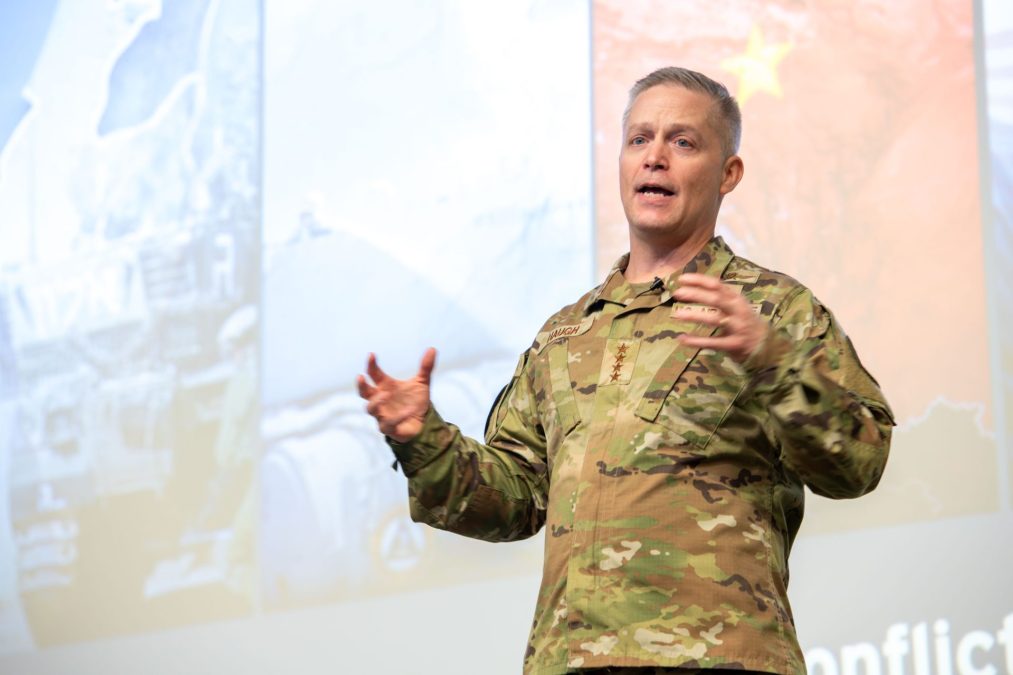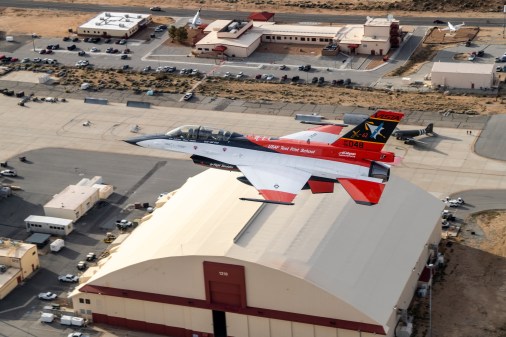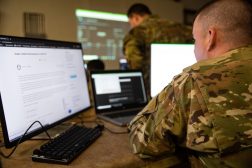Cybercom establishes AI task force

NASHVILLE, Tenn. — U.S. Cyber Command has created an artificial intelligence task force to help it identify technologies that have great promise for full adoption.
The effort is born out of an AI roadmap that the command developed, which was mandated by Congress as part of the fiscal 2023 annual defense policy bill. The legislation charged Cybercom and the Department of Defense chief information officer — in coordination with the chief digital and artificial intelligence officer, director of the Defense Advanced Research Projects Agency, director of the National Security Agency and the undersecretary of defense for research and engineering — to jointly develop a five-year guide and implementation plan for rapidly adopting and acquiring AI systems, applications, supporting data and data management processes for cyber operations forces.
“U.S. Cybercom has developed an AI roadmap and is working to apply AI in cybersecurity to better identify and close vulnerabilities across Department of Defense networks,” Gen. Timothy Haugh, commander of Cybercom, said in prepared remarks for the Summit on Modern Conflict and Emerging Threats, hosted by Vanderbilt University, on Wednesday.
Last week during a House Armed Services Subcommittee on Cyber, Innovative Technologies, and Information Systems hearing, he noted that the roadmap lays out technologies the command wants to begin to experiment with, pilot and provide to the force.
“AI is a tool that enables our mission. It’s a tool that the talented members of the cyber operations forces have been using for years. Along with support from our partners, especially DARPA, DOD federally funded research-and-development centers, and our university partners, we have implemented machine learning models across our missions and currently use AI for operations,” Haugh said at the conference.
Haugh told the audience that the command established an AI task force “to move us from opportunistic AI application to systematic adoption, again, driven by strategic and tactical objectives.”
He listed three outcomes the task force will be focusing on:
- Delivering AI capabilities for operations by the cyber mission force — the offensive and defensive teams each service provides to Cybercom to conduct cyber ops — and integrating the task force more closely with operations.
- Posturing the command to enable AI adoption by addressing materiel issues such as policy and standards that will be critical for responsible, ethical, assured and secure AI application.
- Countering AI threats.
The organization is part of an integrated approach to addressing artificial intelligence between Cybercom and the NSA, which Haugh also heads.
Last year, the NSA established an AI Security Center, modeled off of and residing inside the Cyber Collaboration Center — an unclassified facility outside NSA’s gates designed to bolster the security of the defense industrial base (DIB), help maintain the United States’ global edge in artificial intelligence and ensure malicious foreign actors can’t pilfer American capabilities.
Haugh said NSA’s artificial intelligence roadmap was created to counter China with the goal of detecting and countering threats, driving and deepening partnerships through the government, industry and academia, and developing, evaluating and promoting best practices.
“AI, like our other tools and authorities, carries risk. By ensuring that we are using them in a carefully controlled, regulated and transparent manner, we can harness them to advance our national interests without threatening the rights of our citizens,” Haugh said. “NSA is uniquely positioned to take on this charge because of our multiple authorities levied by Congress and the president for protection of [national security systems] and the DIB, because of our strong dedication to civil liberties, privacy and transparency, and because of NSA’s cadre of experts working directly on the science of AI.”
Haugh told lawmakers last week that officials plan to learn a lot from the task force when it comes to being optimized in using AI for defensive and proactive purposes against threats.






